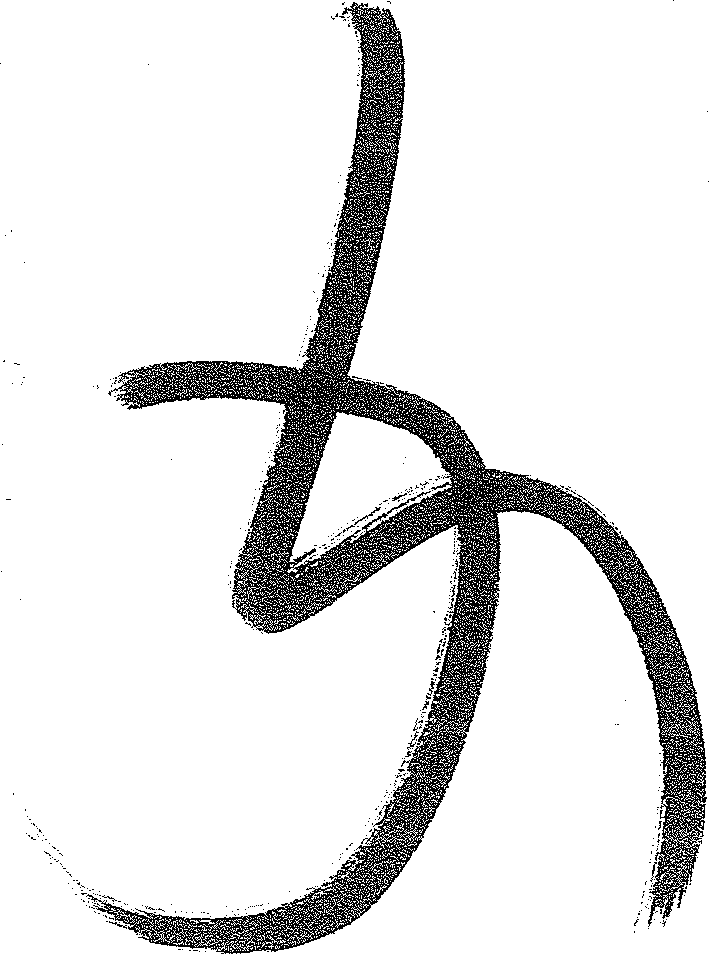Wamolin 1996
This piece was planned as part of a larger project, in which I wanted to try to understand different modes of speech as motions and to translate into music. It was not supposed to be an attempt to reproduce the text or the motion, but to facilitate the encounter of a way of movement with a way of speaking or a kind of text. From a diffuse beginning a motion of one kind or another is formed; at some point it may encounter a certain text, both may illuminate, action each other at this point, and may part again: how this text became music, rhythm was invisible, only the rhythm reaching, touching, carrying the text is seen. This 'translation' would be successful, if a subjectively convincing musical image (a motion, a rhythmic principle, a kind of interaction, a process) is found.
The music is therefore, as it were, a given, by surrounding the text and initially opening its space. There is a Before the text (its rhythm is only just developing) and it is drawn into a process. A point is sought for the text to enter (abruptly) and then the dynamics of its disappearance is traced (if it does disappear).
Maybe the text enters the world as a whole, rests itself on the rhythm like a crown, but is shaken so the crown crumbles into pieces. Maybe it remains fixed, solidifying in this rigidity, extending into the void, turning into its opposite: into silence, muteness. Maybe it disappears as imperceptibly as it arrived. Maybe it seizes everything, merges into all movement, never ends.
Even if Wamolin is the only realised (second) part of this project, all three text may be presented here to hint at the whole context.
(1)
Im Unterschied zu einem Rechtsstreit wäre ein Widerstreit ein Konfliktfall zwischen (wenigstens) zwei Parteien, der nicht angemessen entschieden werden kann, da eine auf beide Argumentationen anwendbare Urteilsregel fehlt. Die Legitimität der einen Argumentation schlösse nicht auch ein, daß die andere nicht legitim ist. Wendet man dennoch dieselbe Urteilsregel auf beide zugleich an, um ihren Widerstreit gleichsam als Rechtsstreit zu schlichten, so fügt man einer von ihnen Unrecht zu (einer von ihnen zumindest, und allen beiden, wenn keine diese Regel gelten läßt). [In contrast to a legal dispute, the differnd is a conflict between (at least) two parties, which can not be appropriately decided, because a rule of judgement that would be applicable to both arguments is missing. The legitimacy of the first argument would not also imply that the other is not legitimate. If one were to apply the same rule to both in order to settle the dispute as a legal dispute, one would wrong one of the two (at least one of the two, or both, if neither accepts this rule).] (Lyotard, The Differend)
(2)
Washington Moscow Berlin
NATO UNO EWU
Chancellor Monarch President
Leadership Hope Confidence
Revulsion Disgust incompreh
necessa ulti massiv
(3)
Teufelgott Teufel August, Rus-
senregent Zarr August, Teu-
felzauberer Augus t.) W.
gartenmauer. Wallacaa-
cteha! SADHALIARN.!
SADHAIARN.! [Devilgod Devil August, Rus- sian regent tsar August, De- vilsorcerer Augus t.) W. gardernwall. Wallcaa- cteha! SADHALIARN.! SADHAIARN.!]
(Hbocefso Apryct, in: Navratil, a+b leuchten im klee)
Ulrike Herzog — congas
Joachim Heintz, Ulrike Herzog, Gunnar Brandt — voices
